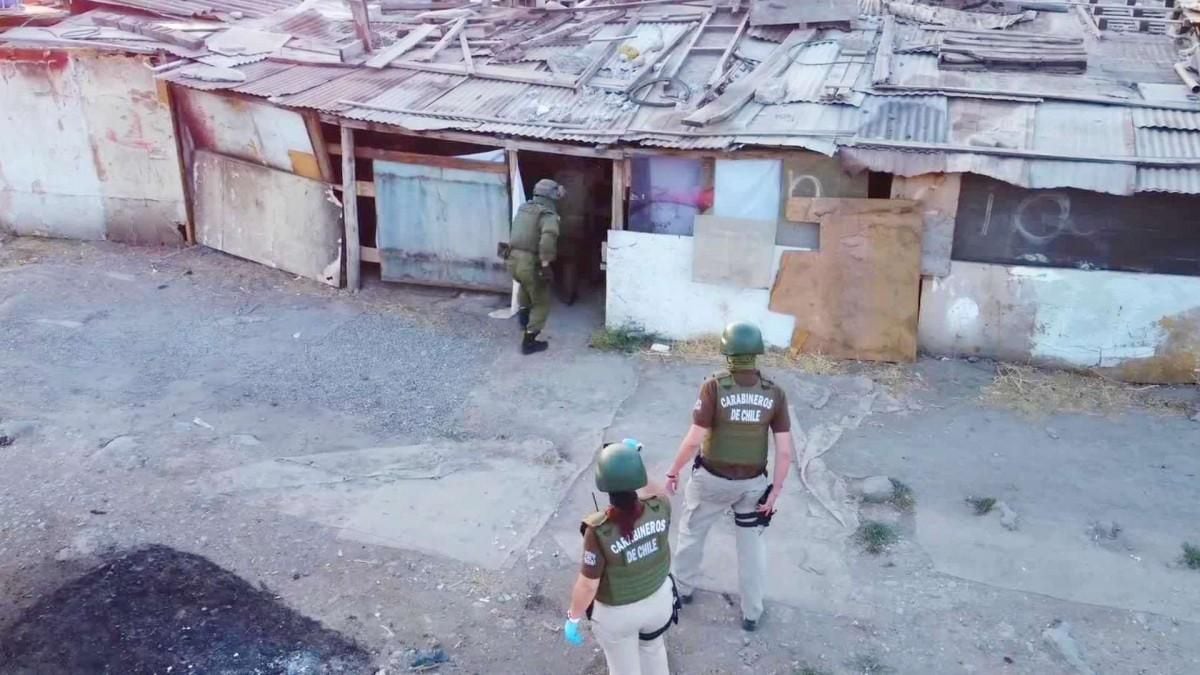The Aragua Train emerged in the Tocorón Penitentiary Center, in the Venezuelan state of Aragua, about 15 years ago.
Since then it has spread its tentacles throughout Latin America, mainly in Peru, Bolivia, Colombia, Brazil, Ecuador and Chile.
In recent days, the mega-band has set off the alarms of Chilean security after the Public Ministry revealed that it was behind the kidnapping and murder of former Venezuelan military officer Ronald Ojeda in Santiago.
The prosecutor in charge of the case, Héctor Barros, confirmed the link between the Aragua Train and the crime of the 32-year-old former lieutenant, who died from mechanical positional asphyxiation and without gunshot wounds.
Last Friday, the police found his body in a suitcase buried 1.4 meters under cement in a neighborhood in the municipality of Maipú, in the western area of Santiago.
Kidnappings and murders are part of the activities of the criminal organization, as are human trafficking, sexual exploitation of migrants and torture.
The Aragua Train, which has become a regional problem, manifested itself in Chile in 2021. These are the keys to its installation and the operations to deactivate it.
The first clue
About three years ago, Chilean police detained two Peruvian women on the border in the extreme north of the South American country, in the Tarapacá Region, carrying ketamine, a drug to treat severe depression that is also consumed at parties.
The women, who came from Bolivia, excused themselves by saying that the Aragua Train had forced them to bring in the drugs.
It was false, but the traffickers' argument helped the Prosecutor's Office learn about the organization.
The company
In one of the large operations carried out by the police last year to dismantle the gang in Chile, it became clear that the organization functions as a company.
Members of the band bought a modern bus that left from Tarapacá to Coquimbo, in the northern area.
Inside the vehicle were 28 irregular migrants and 141 kilos of drugs.
The police managed to arrest 11 members of the meganda and the prosecution discovered that it had a facade of a company, with a corporate name, that owned buses.
From the outside, they appear to operate legitimately, but the buses, for example, smuggled migrants and transported drugs.
New crime
In Chile, several homicides began to be recorded in recent years where the bodies had more than 15 bullets, appeared buried or abandoned in the desert and with signs of torture.
Scenes that the South American country was not used to.
Since the installation of the Aragua Train in Chilean territory, adolescents and migrant women have been trafficked for sexual exploitation, especially Venezuelans, in addition to extortion, drug trafficking, torture and murder when their victims do not comply with payments.
Kidnappings on the rise
Kidnappings in Chile, of an extortion type, have increased, promoted mainly by transnational gangs.
In the Metropolitan Region of Santiago, the average of six to eight cases per year shot up to 26 in 2021. The following year, in 2022, to 46. By November 2023 there were already 45, according to information from the PDI.
One of those cases, although in Rancagua, a city 85 kilometers from Santiago, was the kidnapping of metallurgical businessman Rudy Basualdo, 50 years old.
He was released after paying a million-dollar ransom for him, 40 hours after the event.
The police arrested seven people.
The Rancagua prosecutor, Javier Von Bischoffshausen, targeted Los Piratas del Tren de Aragua.
Cells
The ramifications of the megaband have spread in different ways.
There is a cell, for example, that was formed in Peru, and that today operates only in the Arica Region, in the extreme north of Chile: Los Gallegos.
In 2023, human remains were found buried under cement on an Arican hill.
This case has 38 detainees - most of them Venezuelans - awaiting an oral trial for the crimes of aggravated homicide, trafficking of migrants, weapons and drugs, as well as sexual exploitation of migrant women and extortion.
The answer
Last year Congress approved specific legislation to combat organized crime.
The regulations restructure the crime of illicit association into two types of criminal offenses: criminal and delinquent.
It also hits the assets of organizations.
In addition, it modernized its anti-drug trafficking legislation: it toughened confiscation and expanded the reporting of suspicious operations to institutions that were not required to do so.
The Public Ministry, through a program of the undersecretary of the Ministry of the Interior, has also implemented a new unit since last November: the Organized Crime and Homicide Team (ECOH).
It has been a public policy created, precisely, due to the emergence of a new armed crime and because, also, the crime scene has changed.
Subscribe here
to the EL PAÍS Chile newsletter and receive all the key information on current events in the country.

